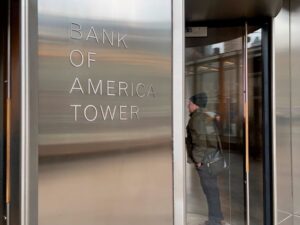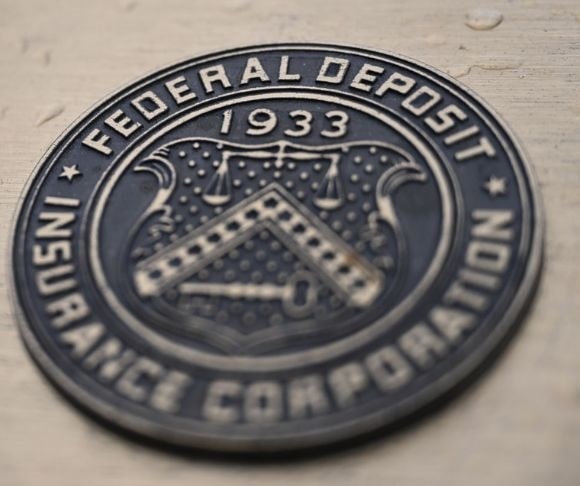Now that the dust has settled and the smoke has cleared in the aftermath of the Silicon Valley Bank and Signature Bank failures, Republican and Democratic lawmakers are discussing changes to deposit insurance. This bipartisan push might seem like a good idea on the surface – we don’t want to lose sleep at night worried that we will not have access to our deposits — but like every other scheme in Washington, this could breed unintended consequences and bolster moral hazards already pervasive on Wall Street.
Deposit Insurance for All
According to a report in Semafor, Sen. Mitt Romney (R-UT) and Sen. Elizabeth Warren (D-MA) are ostensibly spearheading an initiative to impose a universal deposit insurance program. Under the current system, the Federal Deposit Insurance Corporation’s (FDIC) limit is $250,000, up from $2,500 in 1933. However, more policymakers contend that reforms are necessary, be it increasing deposit insurance for small businesses or supporting uninsured deposits funded by Wall Street.
This comes after Treasury Secretary Janet Yellen conceded to the Senate Finance Committee that regional and community bank depositors would not receive the same bailout privileges as SVB, Signature, and the big banks. In fact, the only way uninsured deposits would be guaranteed is if bank failures threatened the US economy. This, of course, establishes a two-tiered system in the US banking system: A small financial institution in Biloxi, MS, would not receive the same treatment as JPMorgan Chase or Bank of America.
But while Romney and Warren appear to be the leaders of this proposal, other GOP and Democratic officials expressed openness to the idea. The reason? It is about shielding depositors from risk. “I just believe that you can’t have depositors worrying about getting their money back,” Romney told Semafor. “Anytime that’s going to be the case, you’re going to present some risks to the sector.” Meanwhile, others have put forward related measures, such as tying the current insurance deposit limit to insurance and installing new premium structures.
The Mid-Size Bank Coalition of America also penned a letter to federal regulators to suspend the FDIC’s deposit insurance immediately to “halt the exodus of deposits from smaller banks, stabilize the banking sector and greatly reduce chances of more bank failures.” This even earned the endorsement from Tesla Motors and Twitter CEO Elon Musk.
If unlimited deposit insurance is the route Washington is going to take, this will usher in an era of exceptional risk and terrible management that would pale in comparison to SVB.
Hazards and Consequences
Thanks to the Great Recession more than a decade ago, the US government established a dangerous precedent. If a financial institution with $500 billion in assets engages in risky lending and suffers fiscal challenges, the bank will be guaranteed a bailout. This allowed these entities to participate in significant risk because they knew the officials, the Treasury, and the Federal Reserve would intervene. For the most part, community and regional banks refrain from partaking in similar practices, but if unlimited deposit insurance becomes law of the land, what would stop them from behaving like SVB? Even if certain regulations are passed, there would not be anything preventing these institutions from attempting to maximize their profit potential.
In economics, this is known as a moral hazard: A party is incentivized to take on risk because it will not bear the full cost and responsibility of that risk.

(Photo by: Lindsey Nicholson/UCG/Universal Images Group via Getty Images)
The next major consequence would be the inflationary aspect. Liberty Nation recently reported that the Eccles Building’s balance sheet soared by nearly $300 billion in one week. Now, there is debate if this was a case of easing or tightening, but it does offer a glimpse into an environment of unlimited deposit insurance. Why would the central bank be the financial provider? The FDIC’s Deposit Insurance Fund (DIF) possesses about $129 billion. By comparison, the total deposit base in the United States is an estimated $17.6 trillion, meaning the Fed would need to run the printing presses to afford this scheme. Remember, the US government is already broke. The result would be massive inflation.
The very idea of deposit insurance is already “nonsensical,” according to legendary economist Murray Rothbard. “‘Deposit insurance’ is simply a fraudulent racket, and a cruel one at that since it may plunder the life savings and the money stock of the entire public,” he wrote in The Case Against the Fed. It seems more like a scheme to enable fractional-reserve lending and poor consumer decision-making rather than support solid balance sheets.
Sweet but Deadly
The latest string of bailouts supported affluent depositors, tech bros, and foreign customers. Should the US government institute universal deposit insurance, the entire planet would be grinning from ear to ear. Unfortunately, it would likely open up a can of worms, with the government enabling risk, speculation, and mismanagement. These proposals are no longer surprising, however. Be it the poor or rich, current society does not allow parties to endure the consequences of their actions. Everybody must pay a price.
The former president of the Independent Community Bankers of America, Camden Fine, might have said it best: “The Siren song of 100% deposit coverage will lure the banking industry to its ruin on the regulatory and legislative rocks. It sounds so sweet, but is deadly to a free market banking system.”




